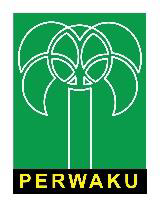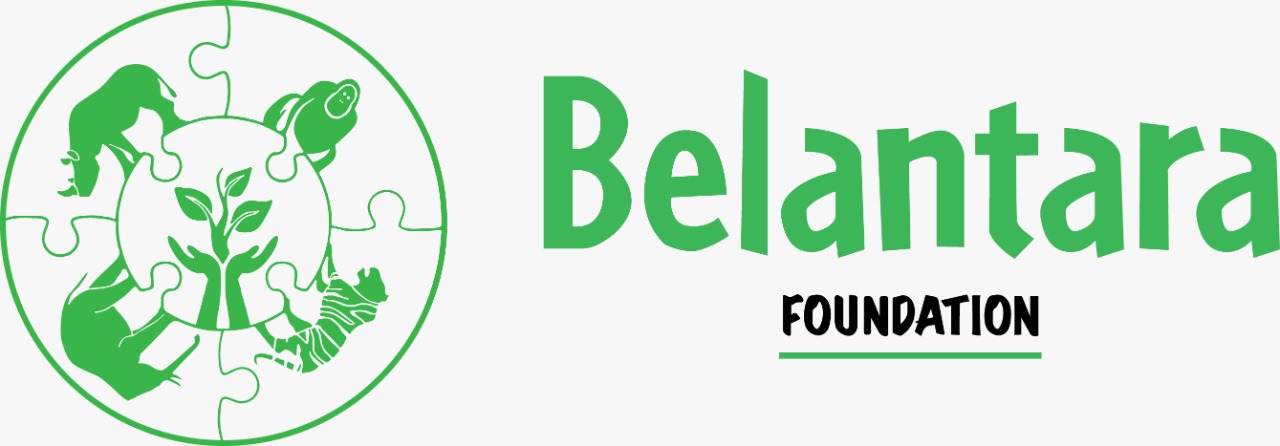Promoting interdisciplinary approaches to solving the complexity of environmental problems in Indonesia
Abstract
As an ecologist, I believe we are now seeing the maturing of what we could call the Age of Ecology. An Age in which we finally develop that coherent and essential mainstream narrative for our future; one in which we tackle the interdependencies of nature loss, the climate emergency, and unsustainable production and consumption.
The challenge has always been to recognise that the world is our bank account, and we live sustainably only by using its interest, not digging into our capital. If we do withdraw more capital, we must then find ways of investing more, to increase our capital. You can hear this language finally gaining much more traction today as politicians, managers and the public use the phrases natural and social capital, as well as the financial and manufactured capital, and recognise our dependencies on the natural environment.
As such, I fully support the holistic, interdisciplinary sentiments and recommendations of Purwanto et al. (2020) in their introduction to the first issue of the Indonesian Journal of Applied Environmental Studies (InJAST). I have promoted interdisciplinary approaches to solving complex environmental problems throughout my career and worked with other academics and practitioners to support the realisation of the societal and economic impact of their research. We have increasingly recognised research impact institutionally and financially, but one main weakness persists and that is the availability of academic journals for publishing such interdisciplinary work. This journal can offer such a space for researchers and encourage the recognition and promotion of evidence to policy and practice communications. Most of all, this journal can foster the culture and confidence to ask the right questions to support the development of evidence-based decision making in policy and operational activities. I have spent a lot of time working with researchers who are doing excellent research but not asking the best questions to help improve management and utilisation of natural resources. Providing a forum in which students and early career researchers can confidently explore the rough answers to the right questions rather than the precise answers to the wrong questions, to paraphrase John Tukey (19152000), would be a wonderful role for InJAST.
I am delighted to be asked to share my environmental experiences and perspectives in this guest editorial for the second issue of InJAST, reflecting for me a long association with Indonesia and Indonesian environmental managers, conservationists and foresters. I have worked around the world, especially in the tropics, firstly as part of scientific expeditions and then leading increasingly complex research and development programmes and institutions. Since returning to the UK, I have been involved in enhancing the quality and impact of scientific and interdisciplinary research and supporting the application and institutionalisation of the ecosystem approach and ecosystem services assessments. Here, I will focus on three major tropical environmental management programmes, two in Indonesia and one in Guyana, South America.
These were complemented by subsequent involvement in the UK Governments environmental management system. All reflect the evolution of environmental management and the emergence of the ecosystem approach, now being institutionalised slowly but surely around the world.
Keywords
References
Brundtland Commission (1987). Our Common Future. United Nations/Oxford University Press.
Brander, L. and F. Eppin (2015). The Economics of Ecosystems and Biodiversity for Southeast Asia. ASEAN TEEB Scoping Study. TEEB.
Cowling, R.M., B. Egoh, A.T. Knight, P. J. O'Farrell, B. Reyers, M. Rouget, D. J. Roux, A. Welz, and A. Wilhelm-Rechman (2008). An operational model for mainstreaming ecosystem services for implementation. PNAS 105 (28) 9483-9488.
Frster, J. and A. Berghfer (2010). TEEBcase forest valuation stimulates green development policies in the Province of Aceh, Indonesia, based on van Beukering et al. (2003 and 2008). TEEB.
IPBES (2018). The IPBES assessment report on land degradation and restoration. Montanarella, L., Scholes, R., and Brainich, A. (eds.). Secretariat of the Intergovernmental Science-Policy Platform on Biodiversity and Ecosystem Services, Bonn, Germany. 744 pages. https://doi.org/10.5281/zenodo.3237392
IPBES (2019a). Summary for policymakers of the global assessment report on biodiversity and ecosystem services of the Intergovernmental Science-Policy Platform on Biodiversity and Ecosystem Services. S. DÃaz, J. Settele, E.S. BrondÃzio, H.T. Ngo, M. Guèze, J. Agard, A. Arneth, P. Balvanera, K.A. Brauman, S.H.M. Butchart, K.M.A. Chan, L.A. Garibaldi, K. Ichii, J. Liu, S.M. Subramanian, G.F. Midgley, P. Miloslavich, Z. Molnár, D. Obura, A. Pfaff, S. Polasky, A. Purvis, J. Razzaque, B. Reyers, R. Roy Chowdhury, Y.J. Shin, I.J. Visseren-Hamakers, K.J. Willis, and C.N. Zayas (eds). Bonn, Germany: IPBES Secretariat. https://doi.org/10.5281/zenodo.3553579
IPBES (2019b). Global assessment report on biodiversity and ecosystem services of the Intergovernmental Science-Policy Platform on Biodiversity and Ecosystem Services. E.S. Brondizio, J. Settele, S. DÃaz, and H.T. Ngo (eds). Bonn, Germany: IPBES secretariat.
Kelman, C.C. (2013). Governance lessons from two Sumatran integrated conservation and development projects. Conservation and Society 11(3): 247263.
Kirsop-Taylor N.A. and A. Hejnowicz (2020). Designing adhocratic public agencies for 21st century nexus complexity: the case of Natural Resources Wales. Public Policy and Administration. https://doi.org/10.1177/0952076720921444
Kirsop-Taylor, N.A., A.P. Hejnowicz and K. Scott (2020). Four Cultural Narratives for Managing Social-ecological Complexity in Public Natural Resource Management. Environmental Management. https://doi.org/10.1007/s00267-020-01320-6
MA (2005). Living Beyond Our Means: Natural Assets and Human Well-being. Statement of the MA Board. Millennium Ecosystem Assessment.
MacKinnon, K., G. Hatta, H. Halim and A. Mangalik (1997). The Ecology of Kalimantan. The Ecology of Indonesia Series Volume III. Singapore: Periplus Editions (HK) Ltd.
Marshall, A.J. and B.M. Beehler (2007a). Ecology of Indonesian Papua Part One. The Ecology of Indonesia Series Volume VI. Singapore: Periplus Editions (HK) Ltd.
Marshall, A.J. and B.M. Beehler (2007b). Ecology of Indonesian Papua Part Two. The Ecology of Indonesia Series Volume VI. Singapore: Periplus Editions (HK) Ltd.
Monk, K.A., Y. de Fretes and G. Reksodiharjo-Lilley (1997). The Ecology of Nusa Tenggara and Maluku. The Ecology of Indonesia Series Volume V. Singapore: Periplus Editions (HK) Ltd.
Monk, K.A. and D. Purba (1999). Progress towards collaborative management of the Leuser Ecosystem, Sumatra, Indonesia. Proceedings of the 2nd Regional Forum for South-East Asia of the IUCN World Commission for Protected Areas, Pakse, Lao PDR, Volume 3.
Monk, K.A. (2001). The evolution and scope of ICDPs: the example of the Leuser Ecosystem, Sumatra, Indonesia. Parks 11(2): 3340.
Purwanto, Y., E. Sukara, P.S. Ajiningrum and D. Priatna (2020). Cultural diversity and biodiversity as foundation of sustainable development. Indonesian Journal of Applied Environmental Sciences 1(1): 210.
Ruitenbeek, J. (1992). Mangrove management: an economic analysis of management options with a focus on Bintuni Bay. EMDI Environmental Reports 8: Irian Jaya. Halifax, Nova Scotia: Dalhousie University, EMDI Project.
Rumahorbo, T. Basa, B. Hamuna and H. J. Keiluhu (2020). An assessment of the coastal ecosystem services of Jayapura City, Papua Province, Indonesia. Environmental & Socio-economic Studies 8: 4553.
Schrter, M., C. Albert, A. Marques, W. Tobon, S. Lavorel, J. Maes, C. Brown, S. Klotz and A. Bonn (2016). National Ecosystem Assessments in Europe: A Review. BioScience 66(10): 813828.
TEEB (2009). The Economics of Ecosystems and Biodiversity for National and International Policy Makers Summary: Responding to the Value of Nature.
Tomascik, T., A.J. Mah, A. Nontji and M.K. Moosa (1997a). The Ecology of the Indonesian Seas Part 1. The Ecology of Indonesia Series Volume VIII. Singapore: Periplus Editions (HK) Ltd.
Tomascik, T., A.J. Mah, A. Nontji and M.K. Moosa (1997b). The Ecology of the Indonesian Seas Part 2. The Ecology of Indonesia Series Volume VIII. Singapore: Periplus Editions (HK) Ltd.
UK National Ecosystem Assessment (2011). The UK National Ecosystem Assessment: Synthesis of the Key Findings. Cambridge, UK: UNEP-WCMC.
UK National Ecosystem Assessment (2014). The UK National Ecosystem Assessment: Synthesis of the Key Findings. Cambridge, UK: UNEP-WCMC and LWEC.
van Beukering, P.J.H. (2003). The economic value of tropical forest: A comparison between the Leuser National Park (Indonesia) and the Iwokrama Forest (Guyana). In P.A. Zuidema (ed.), Tropical forests in multi-functional landscapes. Seminar proceedings. Prince Bernhard Centre, University, Utrecht. (pp. 2332).
van Beukering, P.J.H. and A.E. van Heeren (2002). The economic value of the Iwokrama Forest Reserve, Guyana: a stakeholder perspective. IVM Report No. W-02/22. Amsterdam: Department of Economics and Technology.
van Beukering, P., H. Cesar and M. Janssen (2003). Economic valuation of the Leuser National Park on Sumatra, Indonesia. Ecological Economics 44: 4362.
van Beukering, P.J.H., K. Grogan, S.L. Hansfort and D. Seager (2009). An economic valuation of Acehs forests: The road towards sustainable development. IVM Report No. R-09/14. Amsterdam: Institute for Environmental Studies.
Wells, M., S. Guggenheim, A. Khan, W. Wardojo and P. Jepson (1999). Investing in biodiversity: a review of Indonesias integrated conservation and development projects. Washington, DC: The World Bank.
Whitten, A.J., S.J. Damanik and J. Anwar (1984). The Ecology of Sumatra. Gadjah Mada University Press.
Whitten, A.J., M. Mustafa and G.S. Henderson (1987). The Ecology of Sulawesi. Gadjah Mada University Press.
Whitten, A.J., R.E. Soeriaatmadja and S.A. Afiff (1996). The Ecology of Java and Bali. The Ecology of Indonesia Series Volume III. Singapore: Periplus Editions (HK) Ltd.
DOI: 10.33751/injast.v1i2.2587
 Abstract views : 513
Abstract views : 513
Refbacks
- There are currently no refbacks.
Copyright (c) 2020 Indonesian Journal of Applied Environmental Studies

This work is licensed under a Creative Commons Attribution-NonCommercial-ShareAlike 4.0 International License.













